#colon cancer treatment in mumbai
Text
Colon Cancer Treatment in Mumbai | SSO Hospital

If you or a loved one has been diagnosed with colon cancer, finding the right treatment is crucial. Fortunately, SSO Hospital offers some of the best colon cancer treatment in Mumbai.
With state-of-the-art facilities and experienced medical professionals, you can rest assured that you will receive the highest quality care. From chemotherapy and radiation to surgery and targeted therapy, there are a variety of treatment options available to meet your unique needs. Don't let colon cancer control your life - take control of your health and explore your treatment options in Mumbai today.
0 notes
Text
Colorectal Cancer Treatment By Surgery in Mumbai
Colorectal Cancer Treatment in Mumbai
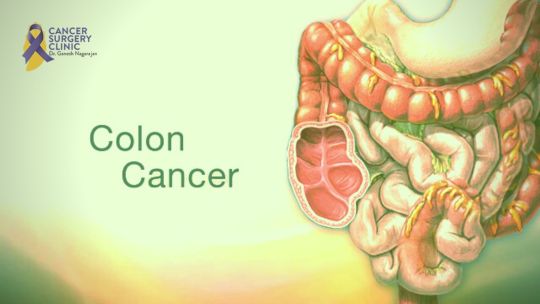
At CancerSurgeryClinic we provide comprehensive state-of-the-art treatment options for the entire gamut of hepatobiliary pancreatic and gastrointestinal cancers. It is run by Dr. Ganesh Nagarajan who provides a complete treatment of Colorectal Cancer. Colorectal Cancer starts in the colon or the rectum and can also be called colon cancer. Colorectal cancer forms when the DNA in cells in the colon or rectum develop mutations that make them unable to control growth and division. It is treatable and surgery is the primary treatment and results in a cure in approximately 50% of the patients. For more details about Colorectal Cancer Treatment in Mumbai, you should visit the website.
0 notes
Text
Dr.Thombare's Clinic (Piles/Fissure/Fistula specialties)
Dr. Pallavi Suresh Thomabre, a renowned and best Proctologist in Kamothe, Navi Mumbai has more than 10 years of experience. With her vast experience, she offers a wide range of services including
- Gallbladder Surgery,
- Colon Surgery,
- Rectal Services,
- Appendictis,
- Stomach Cancer,
- Pancreatic Surgeries,
- Liver Surgery,
- Hernia Repair,
- Colon & Intentine Cancer
- Laparoscopy Surgery.
Dr. Pallavi, a distinguished Proctologist in Kamothe, Navi Mumbai, renowned for accurate diagnoses and effective treatments. With a rich background, including a Lecturership at Ayurved medical college in Jaipur and Patna, and 7-8 years of experience in the surgical field, she has been practicing in her clinic for the past 8 years.
Shop No 1, Gurudeo CHS, Plot No 27, Sector 20, Kamathe Navi Mumbai Maharashtra 410209
098672 24016
0 notes
Text

The common types of hereditary cancer syndromes include:
1. Inherited Breast and Ovarian Cancer Syndrome (HBOC): HBOC primarily stems from mutations within the BRCA1 and BRCA2 genes. Females carrying these genetic alterations face notably heightened risks of breast and ovarian malignancies. Furthermore, BRCA mutations correlate with elevated susceptibilities to other cancers, such as prostate, pancreatic, and male breast cancer.
2. Lynch Syndrome (Hereditary Nonpolyposis Colorectal Cancer, HNPCC): Lynch syndrome arises from mutations affecting genes responsible for DNA mismatch repair, notably MLH1, MSH2, MSH6, and PMS2. Those with Lynch syndrome exhibit increased predispositions to colorectal cancer, alongside risks of endometrial, ovarian, gastric, and urinary tract cancers.
3. Familial Adenomatous Polyposis (FAP): FAP manifests with the proliferation of numerous polyps within the colon and rectum, which pose a cancer risk if untreated. Primarily linked to mutations in the APC gene, FAP substantially heightens the likelihood of early-onset colorectal cancer.
4. Li-Fraumeni Syndrome (LFS): LFS, a rare hereditary cancer syndrome, arises from mutations in the TP53 tumor suppressor gene. Individuals with LFS confront elevated lifetime risks of various cancers, including breast cancer, sarcomas, brain tumors, and adrenal gland tumors, often occurring at a young age.
5. Hereditary Diffuse Gastric Cancer (HDGC): HDGC entails an escalated susceptibility to diffuse gastric cancer, characterized by infiltration of the stomach wall. This predisposition predominantly results from mutations in the CDH1 gene, which encodes a protein crucial for cell adhesion.
6. Cowden Syndrome (CS): CS stems from mutations in the PTEN gene and is typified by multiple noncancerous hamartomas, alongside heightened risks of developing diverse cancers, such as breast, thyroid, and endometrial cancers.
7. Hereditary Retinoblastoma (RB1): Hereditary retinoblastoma arises from mutations in the RB1 gene, leading to the formation of cancerous tumors in the retina, typically emerging in early childhood.
8. Von Hippel-Lindau Syndrome (VHL): VHL arises from mutations in the VHL gene and is characterized by the development of tumors and cysts in various organs, including the kidneys, adrenal glands, pancreas, and central nervous system.
If you have a family history of cancer, you should undergo regular cancer screenings for the early detection and management of cancer. You can undergo a regular full body health checkup at Jaslok Hospital Mumbai, which is one of the best hospitals in Mumbai for cancer screening and treatment.
#cancer#hereditary cancer#hereditary cancer syndrome#Lynch syndrome#inherited breast and ovarian cancer syndrome#familial adenomatous polyposis#full body health checkup#regular health checkups#cancer screening#health checkup packages
0 notes
Text
Best Cancer Surgeon Ahmedabad - Dr Nitin Singhal
Best Cancer Surgeon Ahmedabad - Best cancer surgeon working with best cancer hospital. trained from Asia's best cancer training school Tata mumbai. Expert in all types of cancer surgeries and cancer treatment. Special interest in cancers of colon rectum stomach , esophagus pancreas intestine appendix, gynaec cancers I.e. cancer of ovary. Cancer of uterus( endometrium) cervix cancer . Laproscopic ( keyhole ) cancer surgeries, advanced surgeries like HIPEC. Kidney cancer , bladder cancer , testis cancer .cancers of lungs and chest , breast and head neck and cancers of children. Have one of the best sucess rates for all complex surgeries with more than 2500 surgeries till date. https://maps.app.goo.gl/tfDdNmmNTKhQmaEw8
0 notes
Text
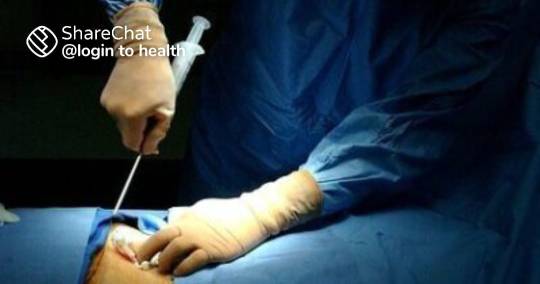
Gastrointestinal (GI) bleeding can have various causes, ranging from mild to severe. Here are some common causes of GI bleeding:
Peptic ulcers: Peptic ulcers are open sores that develop in the lining of the stomach or the upper part of the small intestine. When these ulcers bleed, it can result in GI bleeding.
Gastritis: Gastritis refers to inflammation of the stomach lining. Severe gastritis can lead to erosion of the stomach lining and subsequent bleeding.
Esophageal varices: Esophageal varices are enlarged veins in the lower part of the esophagus (the tube that connects the throat to the stomach). These veins are often associated with liver disease, such as cirrhosis. If they rupture, they can cause significant GI bleeding.
Mallory-Weiss tears: Mallory-Weiss tears are small tears in the lining of the esophagus or stomach. They can occur due to excessive vomiting or retching and can result in bleeding.
Gastrointestinal cancers: Various cancers of the GI tract, such as stomach cancer, colon cancer, or esophageal cancer, can cause GI bleeding, particularly when the tumor erodes into blood vessels.
Diverticular disease: Diverticula are small pouches that can develop in the wall of the large intestine. If these pouches become inflamed or rupture, they can lead to GI bleeding.
Angiodysplasia: Angiodysplasia refers to abnormal, fragile blood vessels in the gastrointestinal tract. These blood vessels are prone to bleeding, especially in the elderly.
Inflammatory bowel disease (IBD): Conditions such as Crohn's disease or ulcerative colitis, which are types of IBD, can cause inflammation and ulceration in the digestive tract, leading to GI bleeding.
Medications: Certain medications, such as nonsteroidal anti-inflammatory drugs (NSAIDs), blood thinners, or corticosteroids, can increase the risk of GI bleeding.
Trauma: Severe trauma or injury to the abdomen or digestive tract can result in GI bleeding.
It's important to note that this is not an exhaustive list, and there can be other less common causes of GI bleeding as well. If you experience symptoms of GI bleeding, such as vomiting blood, passing dark or tarry stools, or experiencing abdominal pain, it's crucial to seek medical attention promptly.There are some best specialists doctors like Dr Amit Maydeo, who is a highly efficient gastroenterologist and is associated with HN Reliance hospital in Mumbai. You may visit him to get the most accurate diagnosis and treatment plan for GI bleeding.
#stomach ulcer#stomach cancer treatment#stomach cancer#stomach surgery#stomach pain#peptic ulcer#gastric ulcer
0 notes
Text
Function of Avastin Injection
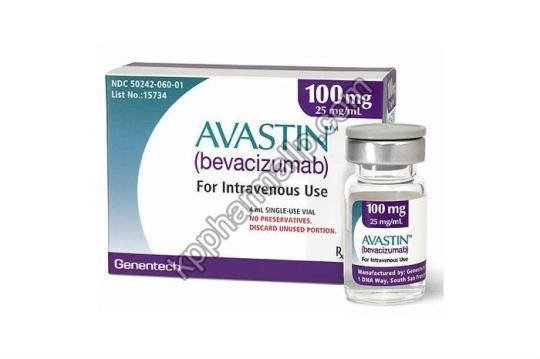
The generic medication Bevacizumab is sold under the brand name Avastin Injection. It is a drug that is used to treat several different types of cancer, including colorectal, lung, and ovarian cancer. The medication Avastin Injection is a member of is categorised as an anti-angiogenesis agent. They function by preventing the development of fresh blood vessels, which tumours require for growth and dissemination.
Avastin injection exporters from Mumbai play an essential role
Avastin injection exporters in India have built a trustworthy supply chain. Avastin injection exporters make sure the drug is delivered on schedule to various locations throughout the world. Avastin injection can slow or even diminish tumour growth by preventing the development of new blood vessels. In some circumstances, it can aid in symptom improvement and prolong life.
How Does Avastin Injection Work?
Avastin Injection functions by inhibiting the establishment of new blood vessels. They provide tumours with the nutrition and oxygen they require to grow and spread. This protein, known as vascular endothelial growth factor (VEGF), is what causes the development of new blood vessels.
For tumours to survive and continue to develop over a certain size, a blood supply is necessary. VEGF is a vital factor in this process. Avastin Injection stops the activity of VEGF, which can limit the tumour's access to nutrients and oxygen. They prevent the development of new blood vessels in and around the tumour.
Additionally, by enhancing their capacity to reach and destroy cancer cells, chemotherapy and radiation therapy may also be more successful. This is when combined with Avastin Injection. Avastin Injection is used to slow down or even reduce tumours. It may help to alleviate symptoms and, in some situations, extend lives.
Which Medical Conditions Are Manageable With Avastin Injection?
Several forms of malignancies, including the following, are treated with avastin injection:
Carcinoma Of The Colon
As a first-line therapy for metastatic colorectal cancer, avastin injection is combined with chemotherapy.
Lung Cancer
Advanced non-small cell lung cancer is treated with avastin injection in conjunction with chemotherapy.
Breast Cancer
Chemotherapy is combined with avastin injection in the treatment of HER2-negative metastatic breast cancer.
Uterine Cancer
For the treatment of platinum-resistant recurrent ovarian cancer, Avastin Injection is used with chemotherapy.
Tumours Of The Renal Cells
For the treatment of advanced renal cell carcinoma, avastin injection is used in conjunction with interferon alfa.
Glioblastoma
Glioblastoma in adults with recurring tumours is treated with avastin injection.
Cancer Of The Cervix
For the treatment of metastatic, chronic, or recurrent cervical cancer, avastin injection is used in conjunction with chemotherapy.
Avastin Injection is administered intravenously, which means that it is injected right into a vein. A healthcare practitioner typically administers it in a hospital or medical setting. Improved patient treatment outcomes are the goal of Avastin Injections future improvements. It would therefore be more available and less expensive.
Conclusion
Avastin Injection is the subject of current research and development. This is being done to examine its potential for treating various cancer types and to increase its efficacy and security. The use of Avastin Injection in conjunction with other medications is being researched. Avastin Injection is being studied and produced in biosimilar forms. This may enhance patient access to this critical treatment and offer more cheap options.
0 notes
Text
Who is the candidate for colorectal surgery?
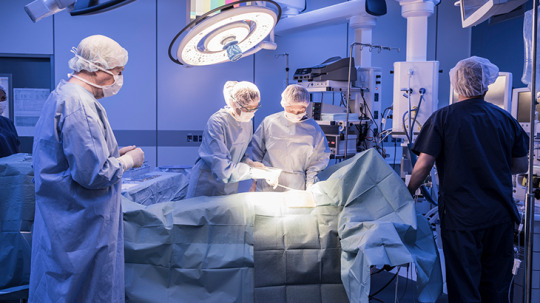
Colorectal surgery is a type of surgery that involves the removal of part or all of the colon (large intestine) and/or rectum (end of the large intestine). It is commonly used to treat colorectal diseases and disorders, such as colorectal cancer, diverticulitis, ulcerative colitis, and Crohn’s disease. Candidates for colorectal surgery include individuals with a diagnosis of colorectal cancer, those who have had a change in bowel habits, or those who have rectal bleeding of unknown cause. Additionally, colorectal surgery may also be used to treat people with complications from diverticulitis, such as an abscess or fistula. Before being considered as a candidate for colorectal surgery, the patient will undergo a thorough evaluation. Dr Chintamani Godbole is one of the best Colorectal surgeon in Mumbai.
This evaluation will include a complete medical history and physical examination, as well as laboratory tests, imaging studies, and possibly a colonoscopy or sigmoidoscopy. The surgeon will evaluate the patient to determine if surgery is the best option for treatment. Factors that are considered include the type and stage of the disease, the patient’s overall health, and the patient’s preferences. If surgery is recommended, the type of surgery and the risks and benefits of the procedure will be discussed with the patient. With the right treatment plan, colorectal surgery can be a life-saving procedure.
0 notes
Link
0 notes
Text
Top Cancer Hospital in Aurangabad: A Comprehensive Guide for Cancer Patients
Aurangabad, a city in the state of Maharashtra in India, is known for its rich cultural heritage and historical monuments. In recent years, the city has also emerged as a hub for advanced medical care, with top Clinic offering state-of-the-art treatment for various ailments, including cancer.
Cancer is a disease that affects many peoples around the world, and the number of cases is on the rise. The good news is that with advancements in medical technology and research, the chances of surviving cancer have improved significantly. However, timely diagnosis and appropriate treatment are crucial in the fight against cancer.
If you or a loved one has been diagnosed with cancer, finding the right hospital for treatment can be a daunting task. To help you in your search, we have suggested the best cancer hospitals in Aurangabad.
OncoRelief Cancer Clinic
OncoRelief Cancer Clinic is really a center point of hope for disease patients We guarantee you that patients can battle against cancer growth as opposed to fear it. We help our patients in their battle against cancer, from screening and finding to appropriate cancer treatment, then, at that point, let it be corrective or palliative.
We provide compassionate, top-caliber, and cost-effective Healthcare to everybody.
Dr. Aditya D Mantri is a Surgical Oncologist in Aurangabad. He did his MBBS from Grant Medical College & Sir. JJ Hospital Mumbai, MS from Govt. Medical College Miraj, M.Ch from GCRI & BJMC Civil Hospital Ahmedabad etc. His expertise lies in Head & Neck Cancer, Breast Cancer, Thoracic tumour, Cervix, Stomach cancer, Colon Rectal cancer, CA Pancreas, Small Bowel GIST, Clinical Trial, Soft Tissue Sarcomas. He is a member of International Federation Head & Neck Onco Surgeon.
In conclusion, Aurangabad has top-notch cancer hospital that offer world-class cancer care services. When choosing a cancer hospital, it is essential to consider factors such as the expertise and experience of the medical team, the quality of equipment and technology available, and the range of treatment options offered. We hope this article helps you make an informed decision about the best cancer hospital in Aurangabad for your needs.
Do visit for more information on:- www.oncorelief.in
#Best cancer Hospital Aurangabad#Best Cancer doctor Aurangabad#breast cancer surgeon Aurangabad#GI onco surgeon Aurangabad#Head Neck cancer surgeon Aurangabad#Best Gynec onco Surgeon Aurangabad#Chemotherapy Specialist Aurangabad
1 note
·
View note
Text
A Leading GI Surgeon in Mumbai for Colorectal Cancer Treatment: Discover the Expertise of Dr. Chintamani Godbole

When it comes to colorectal cancer, early detection and expert care are crucial. Dr. Chintamani Godbole, a renowned GI surgeon in Mumbai, specializes in colorectal surgery and is dedicated to providing the highest quality of care for his patients. Dr. Chintamani Godbole is at the forefront of surgical excellence in Mumbai.
Fellowship and Memberships:
Dr. Chintamani Godbole's impressive background includes serving as a fellow at the prestigious Basingstoke Peritoneal Malignancy Institute and as a locum General/Colorectal surgical Consultant at University Hospitals Coventry, UK. His Membership of the Royal College of Surgeons of Edinburgh (2018) underscores his dedication to excellence, while his membership in the Association of Colo-Proctologists of Great Britain and Ireland highlights his active engagement in research endeavors.
Specialization in Colorectal Surgery:
As a leading GI surgeon in Mumbai, Dr. Chintamani Godbole specializes in treating colorectal (colon) cancer. His expertise extends to addressing a spectrum of lower gastrointestinal tract issues, including those affecting the bowel, colon, rectum, and anus. Utilizing an array of surgical techniques, Dr. Chintamani Godbole ensures personalized care, carefully assessing patients’ medical conditions and overall health to determine the optimal approach for each case.
Pioneering Minimally Invasive Techniques:
Dr. Chintamani Godbole is a pioneer in minimally invasive techniques, including robotic and laparoscopic surgery. These advanced approaches minimize tissue damage and scarring associated with traditional open surgery. Dr. Chintamani Godbole's proficiency in these advanced surgical modalities reflects his unwavering commitment to pioneering techniques that enhance patient outcomes.
Surgical Excellence in Mumbai:
Dr. Chintamani Godbole's expertise in colorectal surgery and minimally invasive techniques positions him as a leading GI surgeon in Mumbai. With a focus on patient-centered care, he continues to redefine surgical standards, ensuring his patients receive the highest quality of care. His hospital affiliations include Jaslok Hospital, Peddar Road, Wockhardt Hospitals, Mumbai, Masina Hospital, Mazgaon, Sushrusha Hospital, Shivaji Park, Zen Hospital, Chembur, and Nanavati Max Hospital, Vile Parle.
Dr. Chintamani Godbole, GI surgeon in Mumbai, is a beacon of hope for those battling colorectal cancer. His exceptional skills, dedication to patient care, and commitment to innovation make him a trusted and respected figure in the field of gastrointestinal surgery.
If you or a loved one is seeking expert care for colorectal cancer or other gastrointestinal issues, consider Dr. Godbole as your GI surgeon in Mumbai. Contact us at 84518 65944 or fill out the Appointment request form to learn more about his services and schedule a consultation.
#gastrointestinal surgeon in mumbai#colon cancer treatment in mumbai#drchintamanigodbole#colorectal surgeon in mumbai#colorectalcancer#gastrointestinal doctor in mumbai#colorectalsurgeon#colorectalsurgery#colorectal surgeon in mumbai.#dr. chintamani godbole
0 notes
Text
Colorectal Cancer Treatment By Surgery in Mumbai
Colorectal Cancer Treatment By Surgery in Mumbai
At CancerSurgeryClinic we provide comprehensive state-of-the-art treatment options for the entire gamut of hepatobiliary pancreatic and gastrointestinal cancers. It is run by Dr. Ganesh Nagarajan who provides a complete treatment of Colorectal Cancer. Colorectal Cancer starts in the colon or the rectum and can also be called colon cancer. Colorectal cancer forms when the DNA in cells in the colon…

View On WordPress
0 notes
Link
0 notes
Text
Laparoscopy Surgeon In Pune - Dr. Shama Shaikh
Laparoscopy Surgeon In Pune
Dr. Shama Shaikh Surve
MBBS DNB FIAGES FMAS
Mch Breast Oncoplasty (Sch)
Consultant General Laparoscopic And Breast Surgeon.
Dr. Shama Shaikh practices at Major Hospitals in Pune like Sahyadri hospital, Hadapsar, Jehangir Hospital, Ruby Hall Clinic, Inamdar Hospital , Fatimanagar. Also provides services at various nursing homes in Hadapsar, Wanworie area. she is well-known Laparoscopy surgeon in pune.
Dr.Shama completed DNB – General surgery from K.E.M. Hospital Pune in 2006,did her M.B.B.S from D.Y.Patil Medical College, Pimpri in 2002. She has been awarded various fellowships in laparoscopy like FIAGES and FMAS which are renowned in India as well as internationally.

Dr.Shama also practices her superspecialty in breast oncoplastic surgery wherein breast is conserved in breast cancer patients. Dr. Shama is a general, Laparoscopic and Breast Surgeon practicing in Hapadsar – Wanworie – camp area since last 15 years.
Aiming to provide excellent treatment to all patients, Dr. Shama Shaikh practices at personal clinic in Wanworie, Sahyadri Hospital , Jehangir Hospital , Inamdar Hospital, Fatima Nagar, Ruby Hall Clinic , Wanworie.
Dr. Shama Shaikh Surve is the most recommended Laparoscopy surgeon in pune. She specializes in gastroenterology and breast surgery along with general problems.
QUALIFICATION
DNB (General Surgery), JUNE 2006, K.E.M HOSPITAL, RASTA PETH,
PUNE. Awarded by National Board of Examination, New Delhi. Health
ministry
M.B.B.S , OCTOBER 2000, Dr. D.Y. PATIL MEDICAL COLLEGE,
PIMPRI, PUNE 3. FIAGES, MAY 2013.
FMAS,2015.
M.Ch. Breast Oncoplasty,(scholar), UEA, Norwich, UK, under mentorship of
Dr. C.B.Koppiker.
EXPERIENCE
1.Training as a medical intern at –
Government Primary Health Centre, Alandi- 3 months as Rural Posting
Y.C.M Hospital, Pimpri, Pune, 6 months- General Surgery, General Medicine, C.M.O duty
Dr. D.Y.Patil Hospital, Pimpri, Pune- 3 months- Obs & Gynae.
House Officer in Surgery, Dr. D.Y.Patil Hospital, Pimpri, Pune- 2 months.
Post Graduate Residency in General Surgery, K.E.M Hospital, Pune- 3 years
Lecturer in General Surgery, K.E.M Hospital, Pune (since Sep 2006 to Jan
2008- 1 ½ years)
Senior Registrar in General Surgery, Noble Hospital, Hadapsar, Pune (since
June 2009 to Dec 2009- 6 months)
Resident General Surgeon, Prayagdham Hospital, Urli Kanchan, Pune (since
Jan 2010 to Jan 2011- 1 year)
Part-Time Specialist in General Surgery, ESIS Hospital, Chinchwad, Pune
(Jan2011 to Jan2012-1year)
Assistant professor in general surgery: D.Y.Patil
Medical College,Pimpri,Pune.(since Jan2012 to March 2018).
Associate Professor since September 2017 To May 2018.
Private Practice in Hadapsar and Wanworie , Pune since 2011 till date.
MEDICAL RESEARCH EXPERIENCE
Topic of dissertation in D.N.B (General Surgery) – Evaluation of thermal
environment in operated cases of Undescended Testes- Feb 2003 to Feb
2005.
General Study of use of Contraceptives in rural population at Alandi- 3
months- during rural internship.
Six international and one national journal original research paper
publications on General laparoscopy and breast surgery topics.
CLINICAL/ SCIENTIFIC MEETINGS
Poona Surgical Meeting (Monthly).
Institutional Weekly clinical and journal club meetings.
Weekly tumour board meetings.
WORKSHOPS AND CONFERENCES ATTENDED
International Laproscopic Conference, Pune- 2004
Laproscopic, Hernia Repair, Live Workshop at K.E.M Hospital, Pune2006
Laproscopic Colonic Surgery, Pune- 2006
General Surgery Workshop, AFMC, Pune- 2006
FIAGES, Bharati Vidyapeeth , Pune- 2009
G-ROS, 2011, Pune- 2011
Endocrine surgery workshop, Pune2011.
Head n Neck cancer CME,Pune2011.
Bariatric surgery CME,Pune 2011.
MASICON-2012,Pune2012.
Hysteroscopy carnival,pune 2012.
FIAGES,Pune,2013.
FIAGES Annual conference,Chennai 2014.
GROS,Pune 2014.
Woundcon Pune 2014.
ASICON,Hyderabad 2014.
Laparoscopic hernia surgery training at ethicon EISE Mumbai. April 2015.
Basic course workshop in Medical Education Technology,DYP,Pimpri.
FMAS,2015.
PSSCON in 2016 and 2017.
Anorectal update 2017 pune.
Grand rounds in oncology 2017 RHC pune.
Hernia Update 2017 RHC pune.
CME on Obesity and Bariatric surgery as faculty, Mày 2018
Thyroid Update-Live surgical workshop, pune.August2018.
FIAGES,Pune. Nov 2018 as faculty.
PSSCON,2018.Dec 2018,Pun2018.
Retromuscular repair workshop,Jan 2019.
Hernia Update, April 2019.
Breast oncoplasty workshop 6 Monthly since 2019.
#FemaleGeneralSurgeoninpune#BreastSurgeoninpune#GastroenterologySurgeoninpune#LaparoscopySurgeoninpune#CancerSurgeoninpune
0 notes
Text

Frequency of health checkups should be tailored to correspond with various life stages:
Infants and Children:
• For infants, pediatricians typically suggest frequent examinations during the first year of life, including visits at 2 weeks, 2 months, 4 months, 6 months, 9 months, and 12 months, which are essential for monitoring growth, development, and administering vaccinations.
• As children progress beyond their first year, it is advisable to schedule annual checkups to oversee their growth, development, and vaccination status. Consistent visits to the dentist and eye doctor are also crucial for their well-being.
Adolescents and Young Adults (Ages 18-30): • Young adults within this age range should generally aim for comprehensive checkups every 2-3 years, assuming they do not have specific health concerns. However, individuals with particular health histories or risk factors may require more frequent evaluations.
• It's important to recognize that mental health issues can surface or intensify during these years, making regular consultations with a mental health professional beneficial.
Adults (Ages 30-50):
• Adults in this age bracket are advised to undergo thorough checkups every 1-2 years. For women, additional visits may be necessary during pregnancy or for gynecological concerns, such as cervical cancer screening (Pap smears) and mammograms.
• Individuals managing chronic conditions like diabetes, hypertension, or obesity may receive recommendations for more frequent checkups to closely monitor their health and make necessary adjustments to their treatment plans.
Older Adults (Ages 50+):
• Once individuals reach the age of 50, it is generally recommended to have annual checkups. Moreover, more frequent screenings for conditions like colon cancer, breast cancer, and osteoporosis may be suggested. Regular assessments of vision and hearing become increasingly vital.
• To assess the risk of osteoporosis, especially in postmenopausal women and older men, healthcare providers may recommend bone density scans (DEXA scans).
There are many best hospitals for full body health checkup in Mumbai which offer comprehensive health checkup packages based on your age, sex, and health condition. Saifee Hospital Mumbai is considered to be one of the finest hospitals that offer a variety of health packages that you can choose from based on your individual health requirements.
#health checkup#full body health checkup package#best hospitals for full body health checkup#best hospitals in mumbai#health package
0 notes
Text
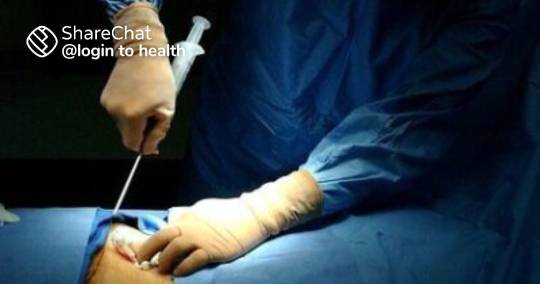
The diagnosis of cancers affecting the stomach, intestine, or other gastric organs typically involves a combination of medical history evaluation, physical examination, imaging tests, and tissue sampling. Here are some common methods used for diagnosing these cancers:
Medical History and Physical Examination: The doctor will begin by taking a detailed medical history and asking about symptoms you may be experiencing. They will also perform a physical examination to check for any signs of abnormalities.
Imaging Tests: Various imaging tests may be used to visualize the organs and identify potential tumors. These can include:
X-rays: Traditional x-rays can provide initial information about the structure and shape of the stomach and intestines, but they may not reveal small tumors.
Computed Tomography (CT) Scan: CT scans use multiple x-ray images to create detailed cross-sectional images of the abdomen. They can help identify tumors, lymph nodes, and other abnormalities.
Magnetic Resonance Imaging (MRI): MRI scans use magnetic fields and radio waves to generate detailed images of the abdomen. They can provide information about the extent of the tumor and its relationship to nearby structures.
Endoscopic Ultrasound (EUS): This procedure involves passing a small ultrasound device through an endoscope to obtain detailed images of the digestive tract. EUS can help evaluate the layers of the gastrointestinal wall, detect tumors, and assess lymph nodes.
Positron Emission Tomography (PET) Scan: PET scans use a radioactive tracer to detect areas of increased metabolic activity in the body. They are often used to determine if cancer has spread to other parts of the body.
Endoscopy: Endoscopy is a procedure where a flexible tube with a camera (endoscope) is inserted into the mouth or rectum to visualize the digestive tract. Different types of endoscopy include:
Upper Gastrointestinal Endoscopy (Esophagogastroduodenoscopy or EGD): This procedure examines the esophagus, stomach, and the upper part of the small intestine (duodenum) to detect abnormalities or take tissue samples (biopsies).
Colonoscopy: A colonoscope is used to examine the colon and rectum. It can help detect tumors or abnormal growths (polyps) and collect tissue samples.
Enteroscopy: Enteroscopy examines the small intestine using an endoscope. It can be performed using different methods, such as single balloon enteroscopy or double balloon enteroscopy.
Biopsy: During endoscopy or other procedures, the doctor may take a small tissue sample (biopsy) from suspicious areas. The sample is then examined under a microscope by a pathologist to determine if cancer cells are present and to identify the type and stage of cancer.
It's important to consult a healthcare professional for an accurate evaluation if you have concerning symptoms or risk factors for these cancers. To know more about stomach cancer, gastric cancers , you may contact some of the best hospitals in India and in Mumbai like HCG Cancer Centre Mumbai. There are some best oncologists in these hospitals who will give you detailed knowledge, will help you with correct diagnosis and efficient treatment plan for the stomach cancer and other gastric cancers mentioned above.
#stomach cancer#endoscopy#radiation therapy#stomach cancer treatment#chemotherapy#cancer treatment#biopsy
0 notes